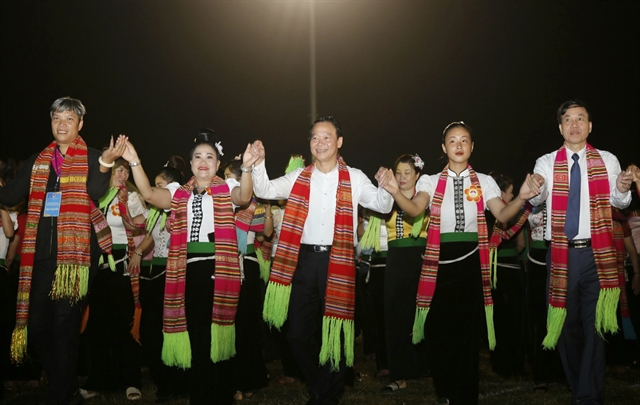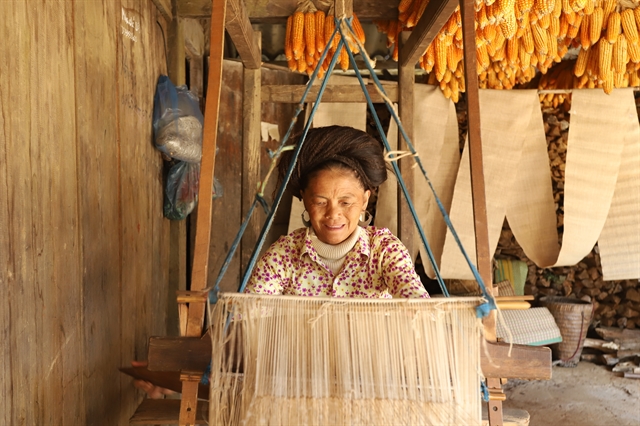 Life & Style
Life & Style

YÊN BÁI Located in the Red River and Chảy River civilisations as the centre of exchange between the Northeast and Northwest regions, Yên Bái Province is home to numerous historical and cultural heritage sites and folk ethnic festivals.
 |
| An art troupe performs at the 2023 Mường Lò Cultural and Tourism Festival in Yên Bái Province. — VNA/VNS Photo Việt Dũng |
According to a report from the Department of Culture, Sports and Tourism of Yên Bái, by the end of 2023, the province had 576 tangible heritages and 510 intangible cultural heritages of ethnic minorities, of which seven intangible cultural heritages are recognised nationally.
These include historical, architectural, artistic, archaeological, and scenic sites.
Among the ranked relics, there are 88 relics with religious elements, accounting for 64.2 per cent.
The tourism industry in Yên Bái has flourished. The province last year welcomed over 2 million visitors, exceeding the plan by 39.2 per cent and increasing 31.4 per cent over the same period in 2022. In particular, the number of international visitors reached 151,026, increasing by 5 times over 2022.
Estimated revenue from tourism reached over VNĐ1,721 billion, exceeding the plan by 27.4 per cent and up 56.4 per cent over the same period in 2022.
Tourism programmes in Yên Bái now revolve around the richness of cultural identity, heritage tours to monuments and landscapes, and experiencing the local distinctive customs, cuisine and festivals.
 |
| Phàng Thị Khua is one of the few Mông ethnic handloom weavers in Trạm Tấu District, Yên Bái Province. VNA/VNS Photo Tiến Khánh. |
Numerous events and festivals are held annually in various regions such as Mường Lò Cultural - Tourism Festival, Mù Cang Chải Terraced Rice Fields and the Mother Goddess Worship Festival at Đông Cuông Temple, making Yên Bái a popular destination for both domestic and foreign travellers.
Tourist-attracting localities that host festivals and heritage sites have done an outstanding task of managing and utilising their historical and cultural resources.
Several spiritual festivals take place in the early spring, including the Harvest Festival of the Khơ Mú ethnics and the Lồng Tồng Festival of the Tày ethnics.
According to Nguyễn Lâm Tới, deputy director of the Yên Bái Department of Culture, Sports and Tourism, the province aims to make tourism a significant economic driver that supports and preserves regional historical and cultural heritage.
The tourism sector has identified a number of solutions such as encouraging communities to maintain the value of cultural identity and further strengthening the promotion of traditional festival activities.
The province also focuses on fostering and training tour guides at tourist destinations and improving the work of restoring, repairing and embellishing monuments. VNS




